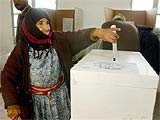"Natural Cures 'They' Don't Want You To Know About" by Kevin Trudeau
From reading other reviews (over 2200 on Amazon.com alone), it seems to me that people either really like the book or really hate it. I fall somewhere in between.
At first, I started reading the book very carefully, word by word. After the first few chapters, though, the information seemed repetetive. I enjoyed reading this book, but it wasn't the greatest book in the world, as some would claim. As a
skeptical medical student, I believe that I have the science background to give a decent review of the pros and cons of this book. There is a lot more I could add to this review, but I would need to write a book just to cover everything. Feel free to comment on my thoughts about this book.
What I Like About the BookThere are several things I liked about this book. It helps explain the motivations of big companies - greed. There is no doubt that big companies cut corners to make more money. And I also have no doubt that pharmacutical companies spend millions to protect their own interest at the expense of our health. I knew things were screwed up at the FDA, but I did not realize how bad things were. After reading the book, it made me more skeptical of almost everything. Skepticism is usually a good thing, but you have to be careful not to let it escalate to paranoia and depression.
I agree with the idea that if you take care of your health, you will almost never get sick again. I also agree with most of his reasons for sickness: that nutritional deficiency, toxins, and stress cause health problems. I am not too sure about electromagnetic chaos - though I suppose it's possible. I completely agree that we should work to eliminate these disease causing agents from our system and our environment. I like the fact that he admits we can't get rid of them all, but we can try.
I like that fact that he presents a whole-body approach to disease, instead of what I am going to be trained to do as a medical student. The human body is very complicated and our interactions with our enviornment and disease is very complex. People looking for a quick answer to a problem will not find one in this book. Most of the author's advice is sound and is frankly common sense. But reading this book reminds us to think about health issues from all angles.
I share Mr. Trudeau's philosophy that drugs, prescription or not, cause disease. I believe that drugs have their place and can be useful
sometimes, but should not be used over the long term. This is blasphemy coming from a medical student - it's akin to a Catholic who doesn't believe in Jesus. But that's what I have always believed and as more and more evidence is being uncovered about the side-effects of even everyday drugs like asprin, it just convinces me even more. I believe it is almost always possible to treat somebody either without drugs completely, or starting with drugs and then phasing in a natural change - more exercise, supplements, rehabilitation, etc.
What I Do Not Like About the BookMy objections to this book fall in two categories: A)material presented in the book; B) the author. For the sake of time, I will only go into a few.
When it comes to the material, there are several issues I have. First, I find some of his assumptions to be incorrect. For example, he assumes that if eat a diet that nature intended us to, then we would never get sick. That is just not true - look at people who lived even a few decades ago. The population of the Earth only exceeded a billion people in the last 2 hundred years or so - now we are over 6 billion. This growth rate is unheard of for one simple reason: advances in medicine such as antibiotics and vaccines. People used to die of infectious diseases we don't even think about any more - malaria, cholera, influenza, etc... The life expectancy of most of our "natural" living ancestors was no greater than 40 years. Today, if you're 40, you're still young and vital.
Second, the author's attacks on vaccine are misleading. It is true that vaccines contain materials known to be toxic, such as mercury. Vaccine makers claim that these materials help stabalize the vaccine and make it more effective. Whether or not that is true is irrelevant. The fact is that thanks to vaccines, we have eliminated small poxs - a previously deadly disease. We have almost totally eliminated polio - the only parts of the world that suffer outbreaks are parts that do not have strong vaccination programs. Thanks to vaccines, infant mortality rates have plummeted in the last 100 years or so. The author only presents as an alternative to "eat natural" - well it didn't protect our ancestors from getting sick and dying young. Vaccines need to be improves, not eliminated. Maybe vaccines do make us a little less healthy in the long run -
at least we are alive to talk about it!Third, the author blasts our current water treatment facilities. It may be the case that tap water affects our health, but if you look back at the way people used to live "naturally", getting fresh water took a big chunk of their day - and there was no guarantee it was healthy or safe. There are a lot of diseases that can come from untreated water from river and lakes. The author presents absoultely no alternative way to treat water for so many people. The only thing he says is that every household should have some kind of filtration system - which would cost thousands of dollars to purchase and a lot of money to maintain in addition to the rising cost of tap water. The expense who be prohibitive to a vast majority of the world's populaton.
The author also blasts the fluoridation of water. It is not some government conspiracy to make us all sick. If you read the history of fluoridation, you will see that it was stared with the best of intentions. In the early 1909, Dr. Frederick McKay noticed that children in an area of Colorado named Pikes Peak had stained, but otherwise healthier teeth than normal. They found that the area's water supply had
naturally accuring fluoride. They scientifically tested adding fuoride to water supplies and it worked - people got fewer cavities. Now we need to find out
scientifically if it is causing health problems and reevaluate accordingly.
Fifth, he blasts milk pasteurization and homogenization. Let me start with homogenization - Mr. Trudeau might have a case against it. It
could be causing health problems. From what I read, however, the jury is still out. His attacks on pasteurization, on the other hand, do not make sense. The idea of pasteurization is to kill most of the harmful bacteria found in natural cow's milk. The process does
not involve "irradiating" the milk. Instead, the milk is heated up quickly, usually with pipes of hot water, and cooled quickly. The author seems to think it changes the natural energy of the milk and makes it poisonous. Granted, the process might destroy some of the enzymes that are naturally occuring in the milk, which may have health benefits - but at least you won't get a terrible disease from drinking milk. Besides, how is this any different than warming milk up on your stove or cooking with it??? And is it really practical for us get our milk hand-delivered?
Lastly, some of his information is conflicting. The author tells us not to trust any professional organization, yet he recommends several alternative health providers. Who is to say that they are not in it for the money? Also, he claims to be banned from mentioning specific products by name, yet he seems to do so where it is convenient for him. His "specific" cures are not at all and have made many, many people angry.
Final ThoughtsAlthough my cons outnumbered my pros about this book, overall I would recommend this book. Though, as with
any health advice (yes, even from your doctor), it is up to every individual to ask questions and do research. This book should not be used as an "ultimate" health guide, but one tool out of many.
It may or may not be true that "they" are suppressing natural cures. But if there were such things, why aren't "they" using the cures themselves and living to be hundreds of years old??
The author claims to be doing this for the sake of our health. And I suppose his intentions could be genuine. Although with all his anti-greed and anti-corruption rhetoric, it leaves me wondering whether or not Mr. Trudeau is "all about the money".
In Mr. Trudeau's defense, his
website that is supposed to have all the missing information does have a free trial period. I intend to take advantage of that and do my own investigations. As soon as I am finished with my review of the information on his site, I will blog about it here.
 For years, the United States government has been saying “we need more democracy in this world”. Heeding the call in January, the Palestinian people took to the poles and performed their democratic duty – they voted.
For years, the United States government has been saying “we need more democracy in this world”. Heeding the call in January, the Palestinian people took to the poles and performed their democratic duty – they voted.


